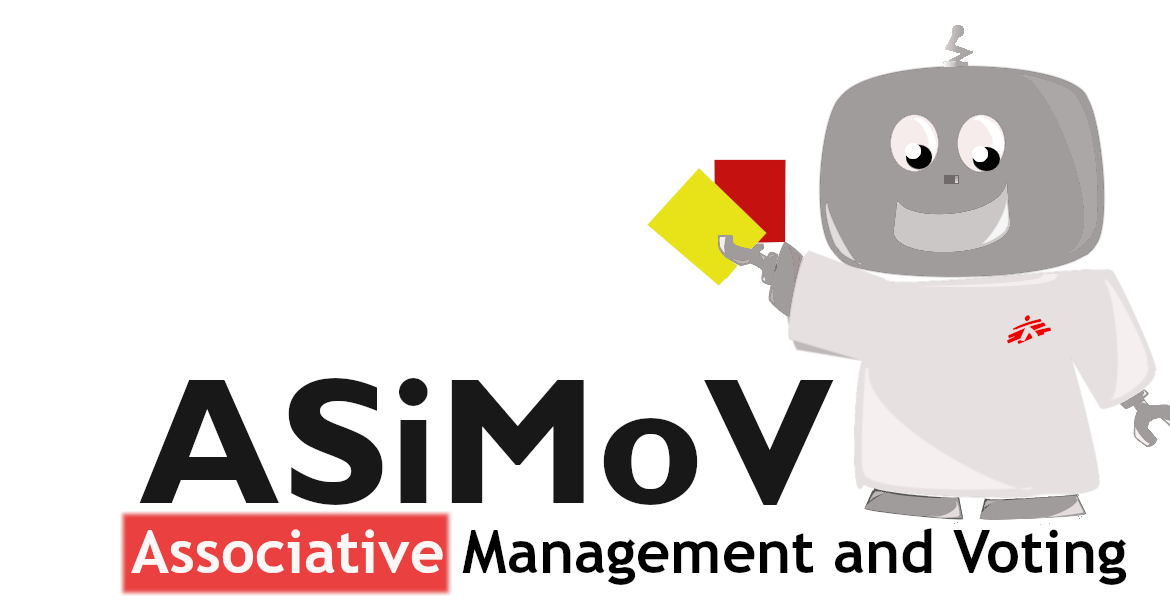2019 - MOTION 2 -
Misuse of counter terrorism laws
MOTION
The OCB Gathering urgently calls on MSF to develop a public position on the misuse of counter-terrorism laws around the world in order to ensure that we can access populations impacted by conflict and maintain our core principles of impartiality, neutrality and independence. MSF calls on all states to ensure that counter terrorism objectives do not hinder access to humanitarian aid for all that need it and full implementation of IHL they are signatory to.
FAD Nigeria
BACKGROUND AND EXPLANATION
The Nigeria Mission has witnessed countless incidents of abuse and the misuse of national counter-terrorism laws via the current conflict in the north-east and other parts of the country. In north-east Nigeria the movement struggles to operate in all areas of the conflict; in particular MSF cannot access communities located in Armed Opposition (AO) areas and only has the ability to work in government-controlled zones. The Nigerian Government has classified the conflict as terrorism, which in turn alters humanitarian access to both sides of the conflict.
These actions have consistently impeded MSF ability to undertake effective operations, prohibited access to populations impacted by conflict, criminalized aid and have often been in direct contradiction with International Humanitarian Law (IHL); of which Nigeria is a signatory. The interpretation of terrorism applied in this instance is incorrect; according to IHL it is a misappropriation of the term. It is also important to consider the global impact of this issue. The issue is not only restricted to Nigeria, it also exists in other countries where rural insurgencies are routinely qualified as terrorist actions. If there continues to be no action taken by the international community when counter terrorist laws are used to impede the impartial provision of humanitarian aid to those who need it, we cannot estimate how many thousands of people will continue to suffer from lack of care.
FEEDBACK (Draft)
Since the last OCB gathering, our work on counter terrorism (CT) can be divided into:
- internal debates and reflections,
- support to operations in CT environments and public positioning / advocacy.
We planned to launch a big research and public positioning on CT, but it was unfortunately delayed by COVID. However, the research will start in October and we plan to launch something early next year (advocacy strategy with a briefing paper, comms material etc). The dossier will be worked on by Luz Saavedra.
Internal discussions / debates
- There was an intersectional workshop organised on behalf of the RIOD in Geneva that was attended by OCB DG and Analysis Department. The outcomes acknowledged the importance of the evolution of CT to MSF (which was not a given outcome as some OCs are critical of the CT discourse).
- There was an IB discussion on CT with presentation from the OCB Analysis Department at late last year and where we reinforced some of our main points. We compiled an overview of our role in the file over the past years (below are the different external pieces that have been published).
- Recently, there was an a exchange with MSF Japan associative and executive, that was attended by the Analysis department and OCB Board member. The outcome was an exchange on challenges and achievements of the motion implementation.
Specific country support
- The Advocacy Department provided specific support to operations in navigating CT environments in Nigeria, Mali, Afghanistan and Gaza in particular.
Public positioning
- There was an OpEd that we worked on for Nigeria signed by the OCB Operations Director https://www.msf.org/counter-terrorism-killing-humanitarian-action-nigeria
- The Analysis Department took part in a debate in the Dutch parliament on CT legislation https://msf-analysis.org/im-humanitarian-dont-prosecute-job/
Written outputs on the topic:
- Treating terrorists (Jonathan Whittall): https://www.jadaliyya.com/Details/33495
- The politics of health in counter terrorism operations (Jonathan Whittall): http://msf-analysis.org/politics-health-counterterrorism-operations/
- Starving, bombing civilians in the name of 'fighting terrorism' (Jonathan Whittall): https://www.aljazeera.com/amp/indepth/opinion/starving-bombing-civilians-fighting-terrorism-180517081243029.html
- Humanitarians in the Age of Counter-Terrorism: Rejected by Rebels, Co-opted by States (Michiel Hofman): http://msf-analysis.org/humanitarians-age-counter-terrorism-rejected-rebels-co-opted-states/
- Medics as force multipliers around Mosul—at the expense of medical ethics? (Jonathan Whittall): https://blogs.bmj.com/bmj/2017/06/14/medics-as-force-multipliers-around-mosul-at-the-expense-of-medical-ethics/
- IHL & Counter-Terrorism: Tensions and Challenges for Medical Humanitarian Organizations (Francoise Saulnier): http://msf-analysis.org/ihl-counter-terrorism-tensions-challenges-medical-humanitarian-organizations/
- A War on Health? (Jonathan Whittall and Heather Pagano) - http://msf-analysis.org/a-war-on-health/
- An environment conducive to mistakes? Lessons learnt from the attack on the Médecins Sans Frontières hospital in Kunduz, Afghanistan (Francoise Saulnier and Jonathan Whittall): https://www.cambridge.org/core/journals/international-review-of-the-red-cross/article/an-environment-conducive-to-mistakes-lessons-learnt-from-the-attack-on-the-medecins-sans-frontieres-hospital-in-kunduz-afghanistan/53B753AD4843E442AE69EB87A94458F7#
- Hospital Shields and the limits of international law (Neve Gordon and Nicola Perugini): https://academic.oup.com/ejil/article-abstract/30/2/439/5536724
- Hospital bombings: empirical and theoretical fallacies of those rejecting a ban (Neve Gordon and Nicola Perugini): http://www.ejiltalk.org/hospital-bombings-empirical-and-theoretical-fallacies-of-those-rejecting-a-ban/comment-page-1/
